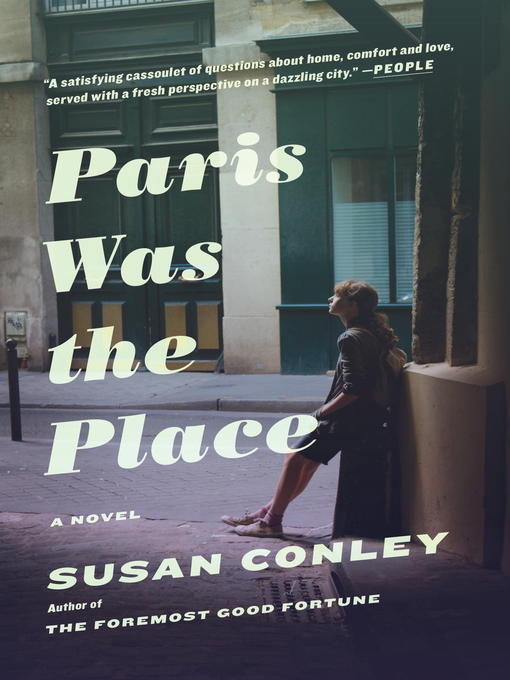
Paris Was the Place
کتاب های مرتبط
- اطلاعات
- نقد و بررسی
- دیدگاه کاربران
نقد و بررسی

May 20, 2013
Paris is the place where Willow “Willie” Pears can finally live near her brother Luke, who’s moved there with his boyfriend after years in China. She’ll teach poetry, try to get over her mother’s death, and, as the story begins, volunteer at a political asylum center, helping teenage girls practice their English while they wait for their court dates. That’s where she meets attorney Macon Ventri. Willie, as she tells us, has an “eager face” that makes her “hard to deny.” The same could be said of the book; it’s tenderhearted, earnest, and sincere in ways that make it hard to deny, even when Willie gets over-involved with Gita, one of the asylum seekers, and is surprised at the trouble she causes; or when it takes Willie and the other characters much too long to diagnose Luke’s persistent cough and exhaustion. As Conley (The Foremost Good Fortune) draws her, Willie may be a bit precious, but she’s also a true believer—not only in poetry but in love—and the heart of the book is the interlocking love stories, between Willie and the almost-to-good-to-be-true Macon, as well as between sister and brother, daughter and mother, and Willie and her asylum-seeking student. Agent: Stephanie Cabot, Gernert Company.

July 1, 2013
In an affecting debut, Willow Pears learns not only to love, but also what matters when dealing with loss and problems that have no solution. It's 1989, and Willie, a 30-year-old American poetry professor, has followed her gay older brother, Luke, to Paris, where she starts helping out at an asylum center teaching vulnerable teenage girls from many lands who want to make a life in France, including Gita, a rape victim from India. The girls have a lawyer, Macon Ventri, and soon he and Willie have fallen into a rhapsodic love affair involving lots of sex, romantic journeys to southern beaches and delicious meals cooked in Willie's apartment, into which Macon moves. But as well as bliss, there are problems. Luke is diagnosed as HIV positive; Gita loses her court case; and Willow makes a bad mistake by helping her to abscond--an impulsive action which threatens both Macon's job and the center's future. Eventually, Willie is forgiven, and she travels with Macon to India, an interlude of travelogue and togetherness during which Conley adds further variations to the theme of mothering which courses through her tale, before the couple returns to Paris for the inevitable crisis of grief, restoration and continuity. There aren't many surprises in Conley's first novel, but the sympathetic storytelling and limpid first-person narration succeed in casting a spell.
COPYRIGHT(2013) Kirkus Reviews, ALL RIGHTS RESERVED.

July 1, 2013
Willow Pearsan American poetry professor living in 1980s Paris to be near her brother, Lukeimmerses herself in the vibrancy of the city and the tragedy of an international group of young women incarcerated at an immigration holding center. Recruited to help the detainees prepare for their asylum hearings, Willow forms a dangerously close friendship with Gita, who faces deportation to India and a return to the men who raped her. Macon Ventri is Gita's appointed lawyer, and he sweetens Willow's interest in Gita's case with some welcome romantic interest of his own. As Macon and Gita try to navigate the legal labyrinth, Willow and Luke confront France's health-care system when Luke is diagnosed with AIDS. Eventually, Gita's desperate bid for freedom will involve Willow in a scandal that promises to shutter the immigration center and shatter her affair with Macon. Deftly exploring the complexities of friendship, family, and commitment, Conley adroitly demonstrates her infectious passion for Paris through an extensive and intimate portrait of the inner workings of the city concealed behind its seductive facade.(Reprinted with permission of Booklist, copyright 2013, American Library Association.)

























دیدگاه کاربران